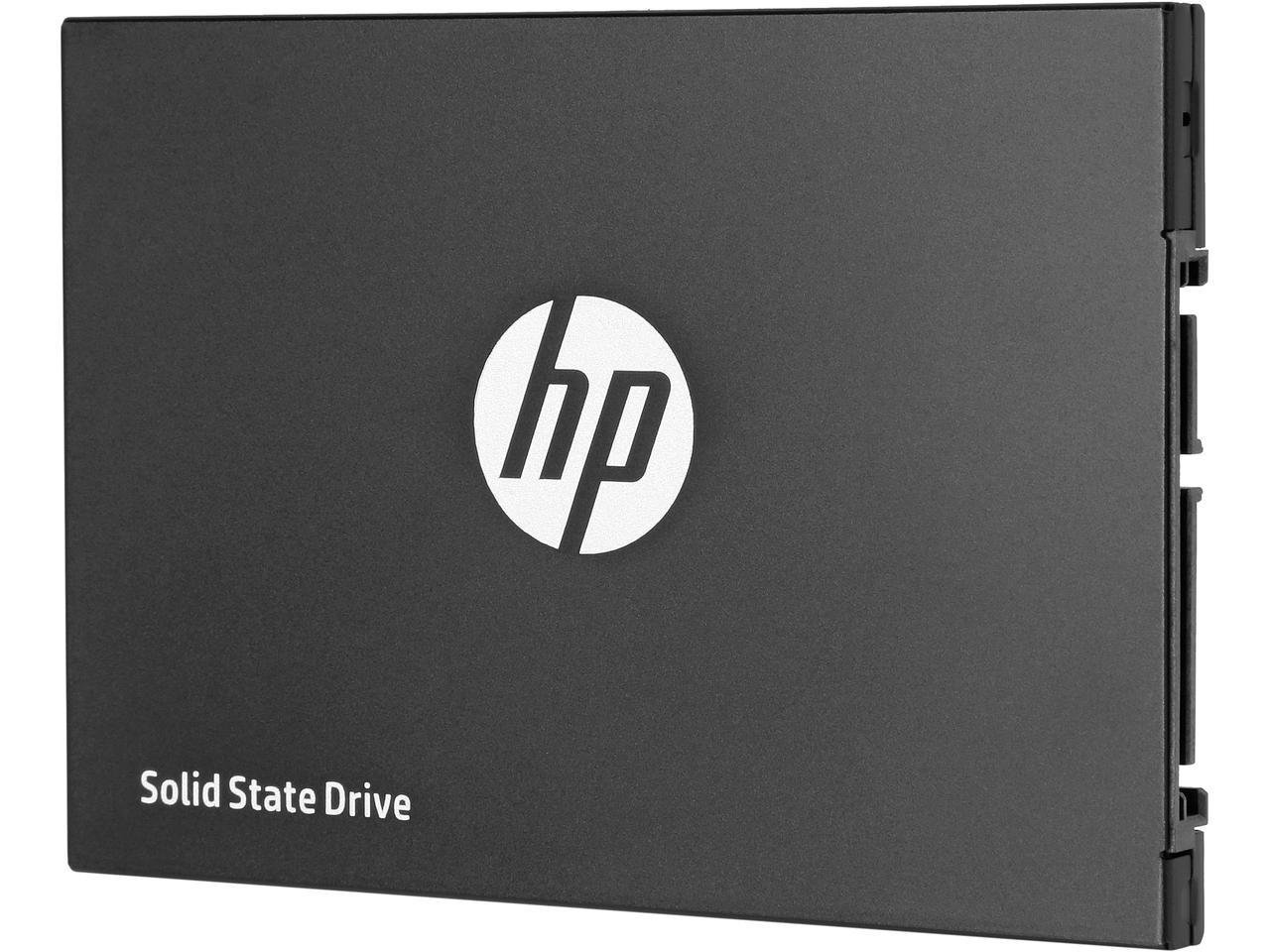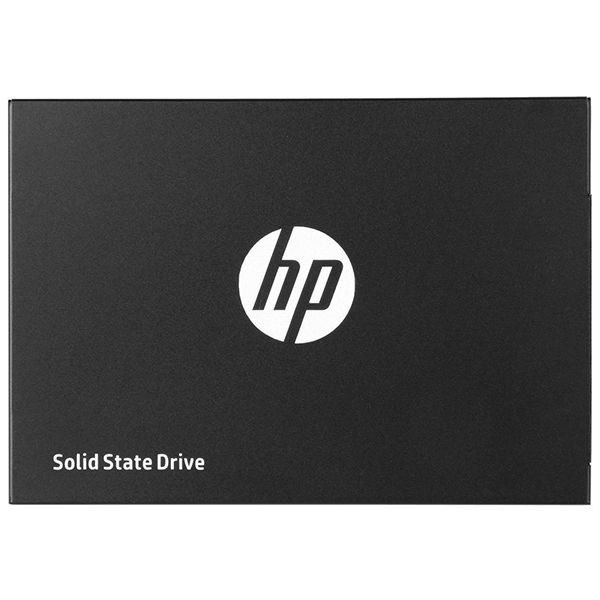Early Verdict
Low application performance combined with a higher-than-EVO price doesn't make for a good combination in this climate. Companies don't have to win both categories, but people want the best value. That comes from a successful mix of both. The S700 Pro 256GB is close, but still a little off target.
Pros
- +
High sequential performance
- +
Attractive design
- +
3D NAND
Cons
- -
Pricing
- -
Low performance in applications
Why you can trust Tom's Hardware
Features & Specifications
When it comes to brand recognition, few technology companies are in the same league as Hewlett-Packard. The company started out in a Palo Alto garage with two men making electronic test equipment. Through most of the 2000s, HP was the world's leading PC manufacturer, and it made it without a cow theme or a "dude" actor.
In the modern era, HP has a successful flash product that scales from the 3par all-flash server line to more mainstream 2.5-inch consumer SSDs. The company licenses its name so other manufacturers can build products with the label, but every new device must pass through HP's rigorous internal qualification testing before coming to market.
Over the years, we've seen PNY and Biwin build HP-branded SSD products. The SSDs sell online and in retail stores but largely go unnoticed by the enthusiast community, until now. A distributor for HP-branded SSDs contacted us and offered the new S700 Pro 2.5" for testing. This series uses cutting-edge technology that goes head-to-head with many of the products we test on a regular basis. An HP-branded SMI SM2258 controller is at the heart of the S700 Pro, just like we see in many other mainstream SSDs. It also comes packed with Micron's 384Gbit 3D TLC NAND. However, the S700 Pro employs HP-tuned firmware, and that makes all of the difference. Just as important as the performance, the S700 Pro comes to market with competitive price points.
Specifications
The HP S700 Pro uses a familiar combination of components with an unusual firmware that does a really good job of maintaining a high level of performance. HP chose the SMI SM2258 controller that we've tested a number of times; its one of the most popular SSD controllers available. The controller features advanced Low-Density Parity Check (LDPC) error correction to increase the endurance of Micron's 384Gbit 3D TLC die.
Sequential throughput reaches as high as 565/520 MB/s read/write for the high-capacity model, and throughput only drops a little through the range. The lowest capacity 128GB model writes sequential data at 460 MB/s. The write specifications only measure SLC buffer performance and not native TLC throughput. We see more random read performance variation between the high- and low- capacity models than the sequential performance. We found a range of 40,000 random read IOPS (128GB model) to 85,000 IOPS (512GB model). Random write performance stays relatively tight, between 85,000 and 90,000 IOPS, but these numbers also reflect SLC buffer performance.
Don't let the footnotes discourage you. The HP S700 Pro uses a high-performance firmware that we haven't found on any other SM2258-equipped drive with Micron flash. I'm certain many of our readers will be surprised with the S700 Pro's performance.
Pricing, Warranty & Endurance
Determining the overall value of the HP S700 Pro is difficult. Newegg sells the series through their warehouse and also through third parties. The Newegg drives retail for $79.99, $169.99, and $269.99. The 256GB model at $169.99 includes a free Seagate 2TB HDD. At Newegg, the 512GB drive sells for $269.99 through a third party, but Newegg lists it at just $209.60.
Get Tom's Hardware's best news and in-depth reviews, straight to your inbox.
For most of our readers, the $209.60 S700 Pro 512GB is the sweet spot. But it still has to compete well with the $179 Samsung 850 EVO 500GB that carries a five-year warranty.
HP backs the S700 Pro with a three-year warranty that has an endurance limit of .5 Drive Writes Per Day (DWPD). As you would expect, the HP warranty includes an 800 number for support and claims.
Packaging
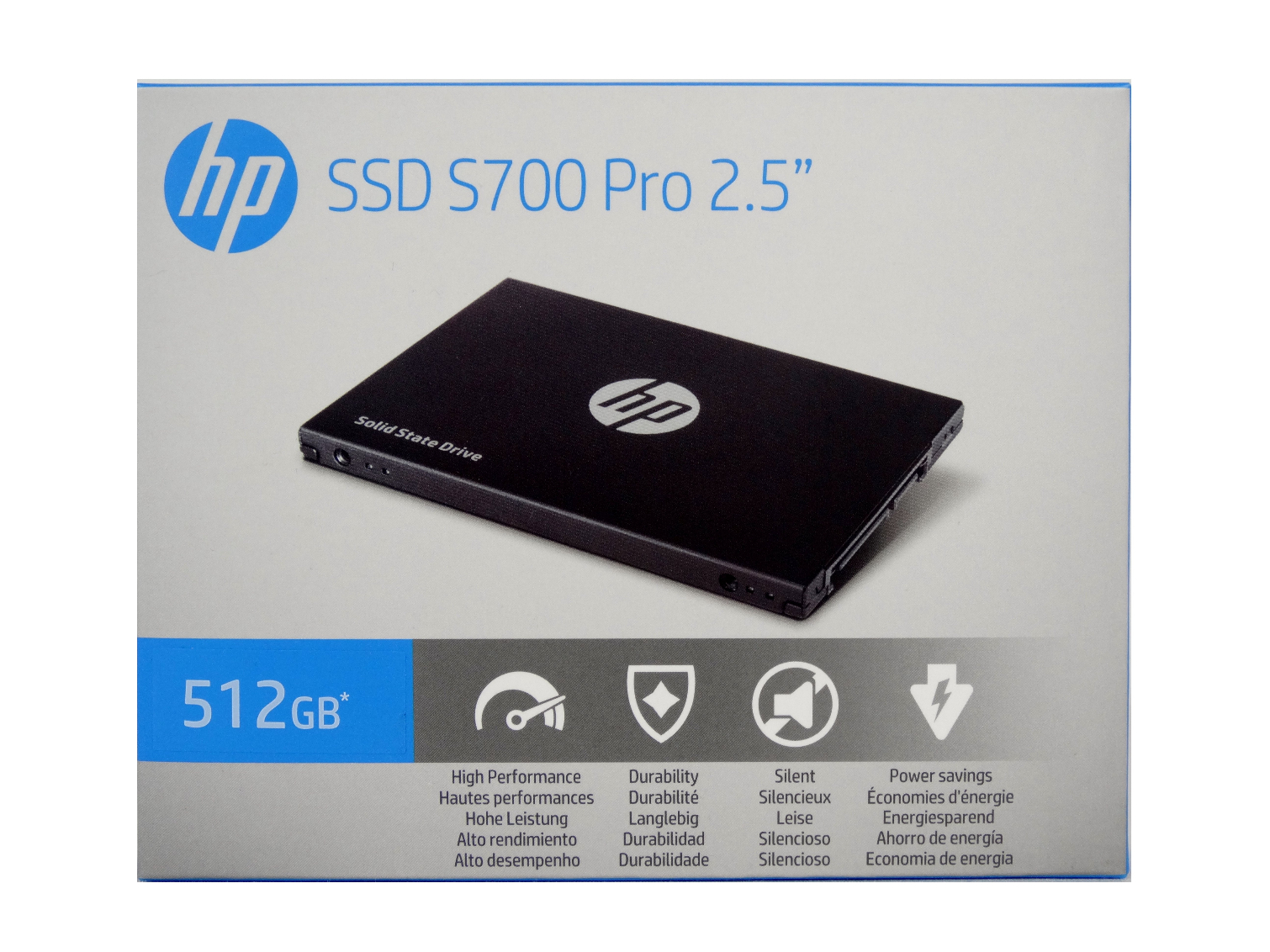
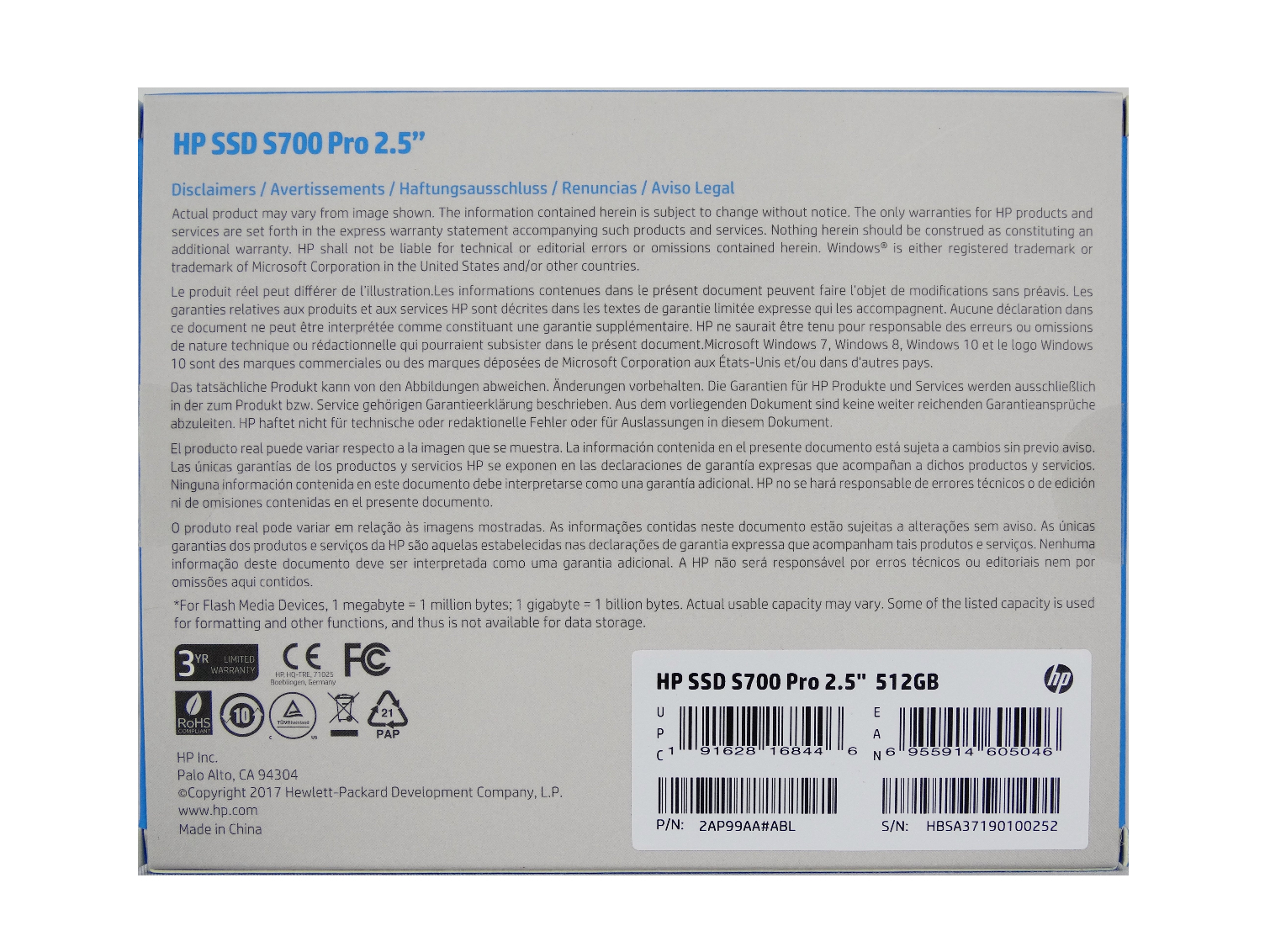
The HP S700 Pro ships in a retail-friendly package that we should see on store shelves at some point. The drive just came to market and hasn't worked through the supply chain yet. Only a few online retailers list this model, but that will soon change.
A Closer Look
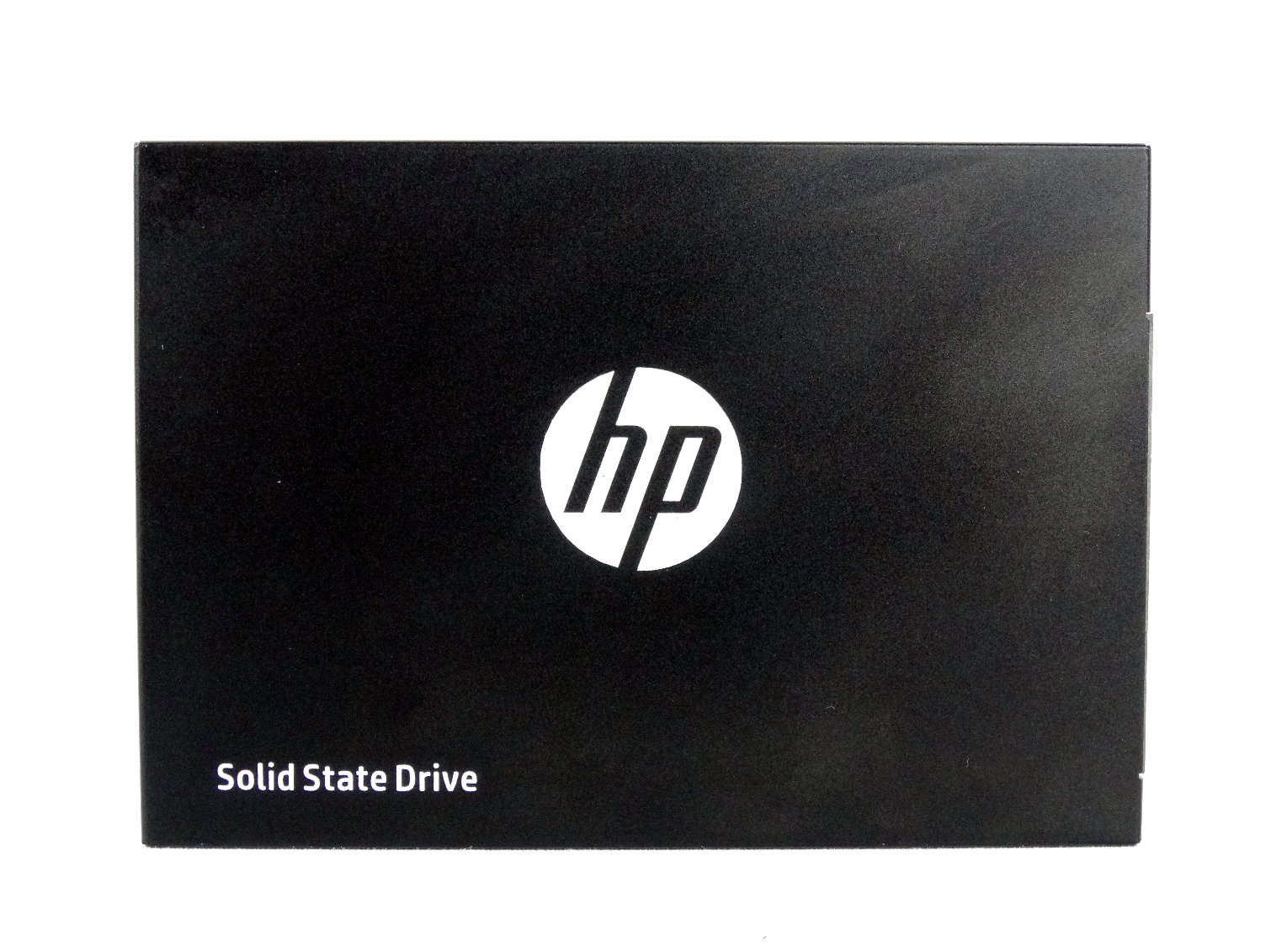
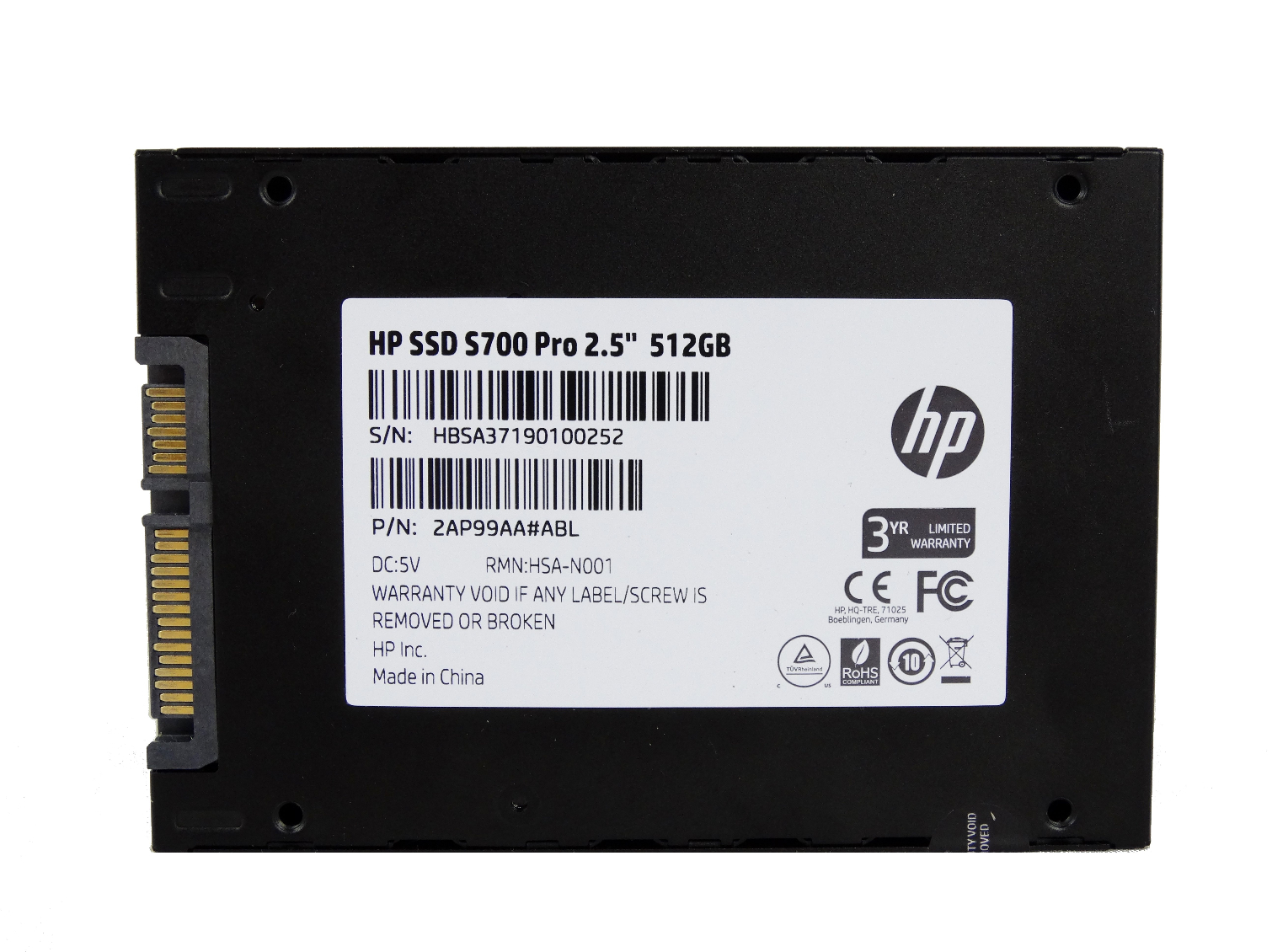
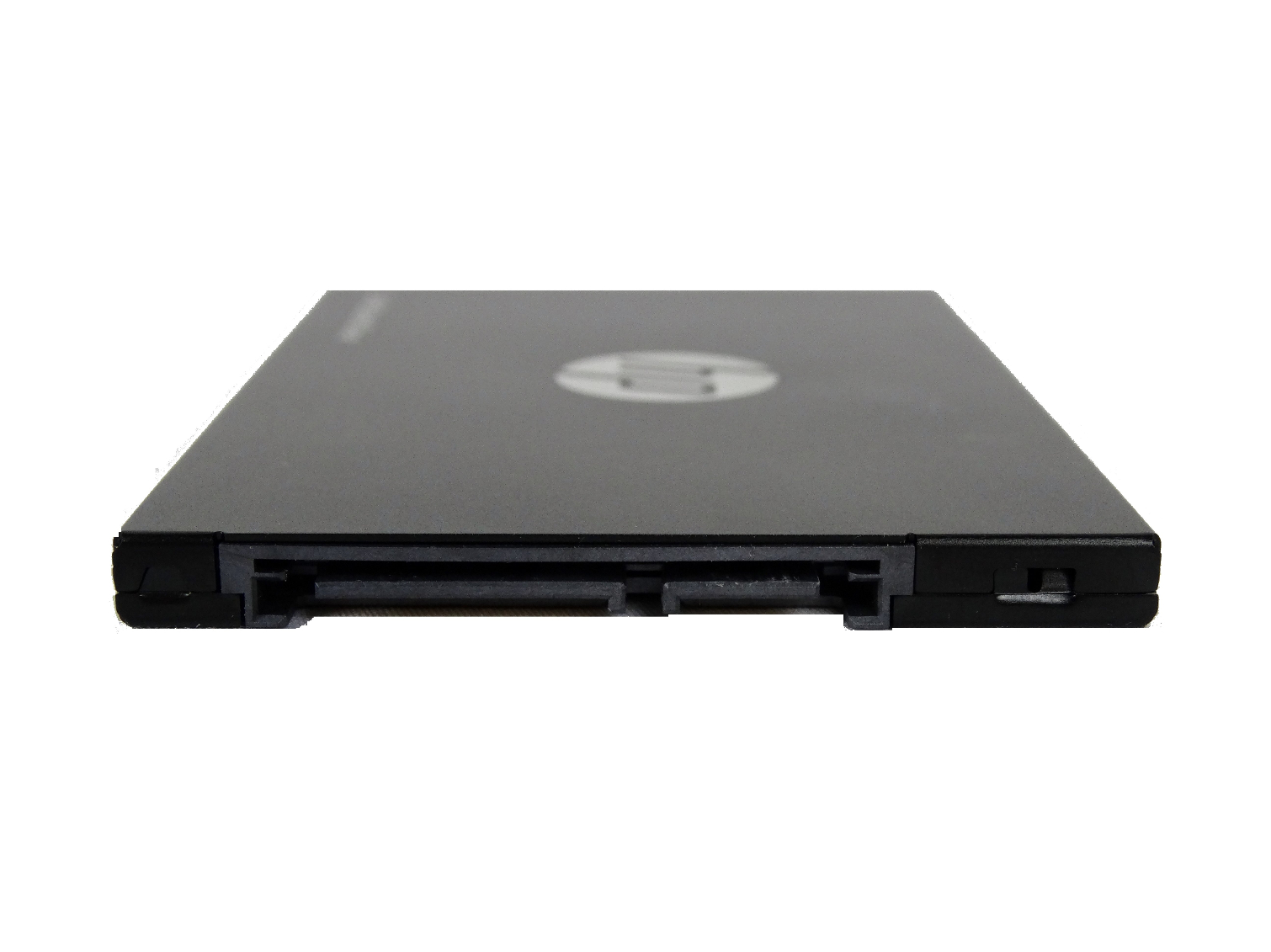
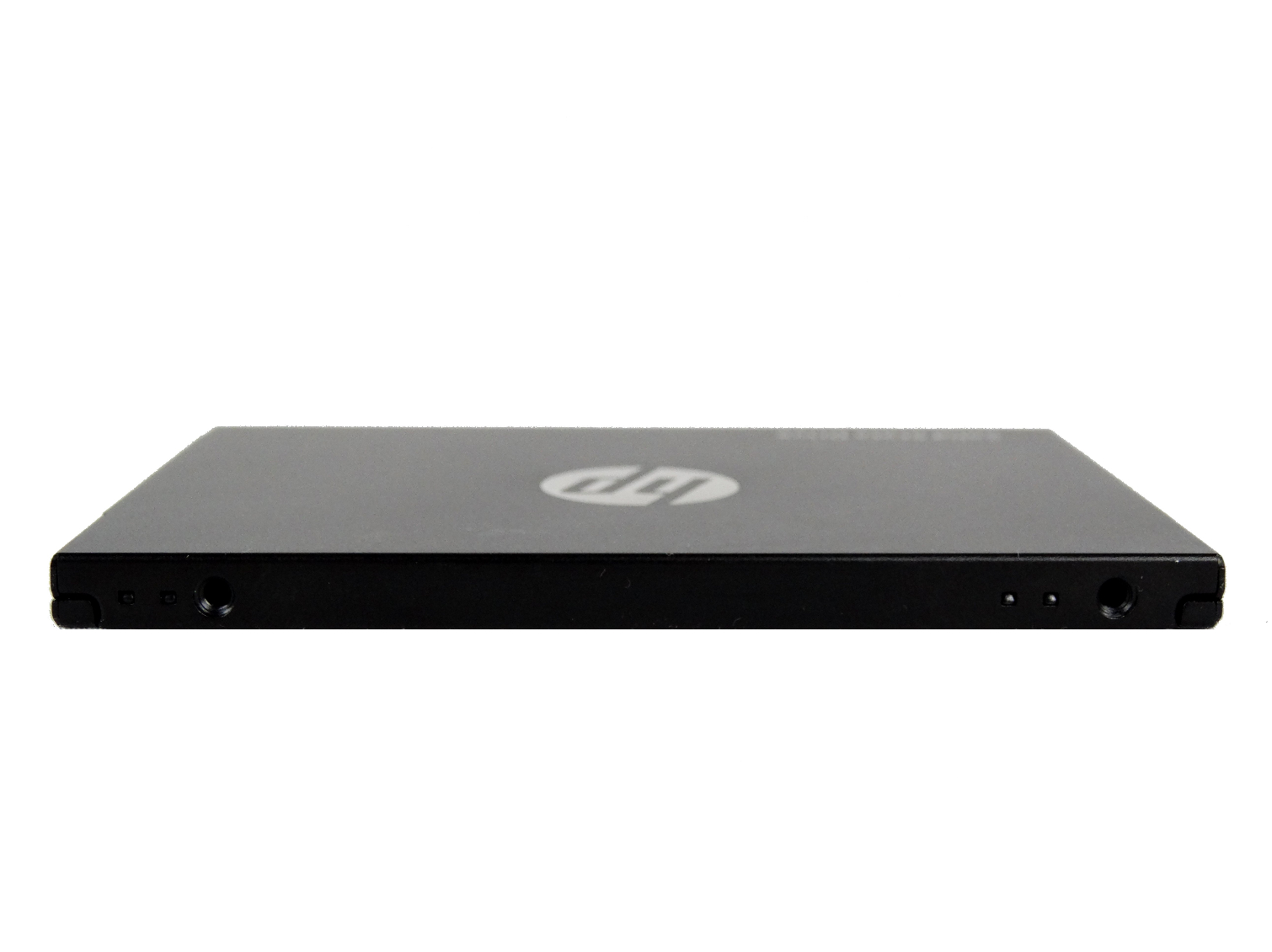
In typical HP style, there isn't much to look at on the outside of this SSD. You won't find any RGB blinkies or racing stripes. On the surface, the S700 Pro looks like a typical business-class SSD.
Internals
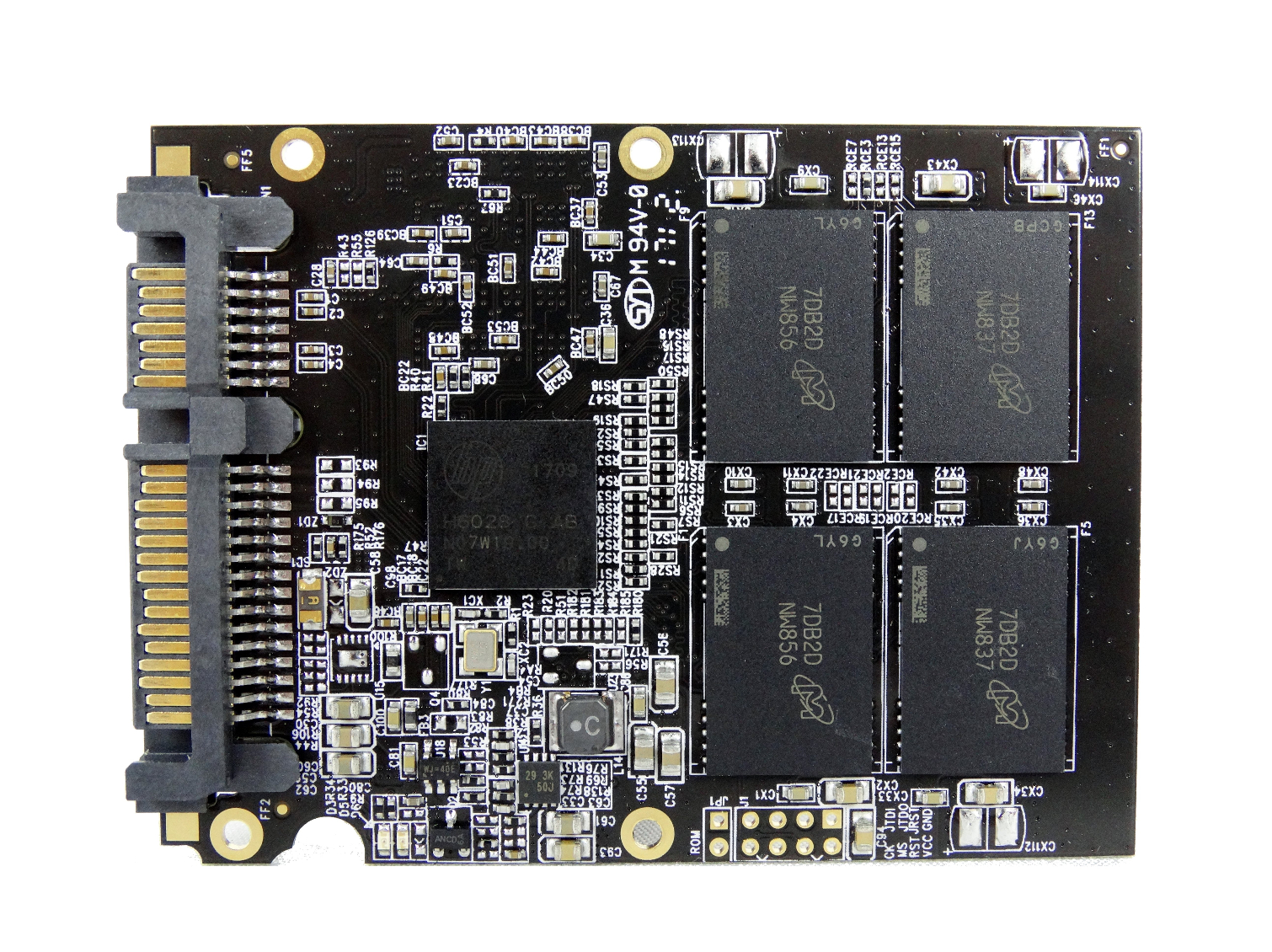
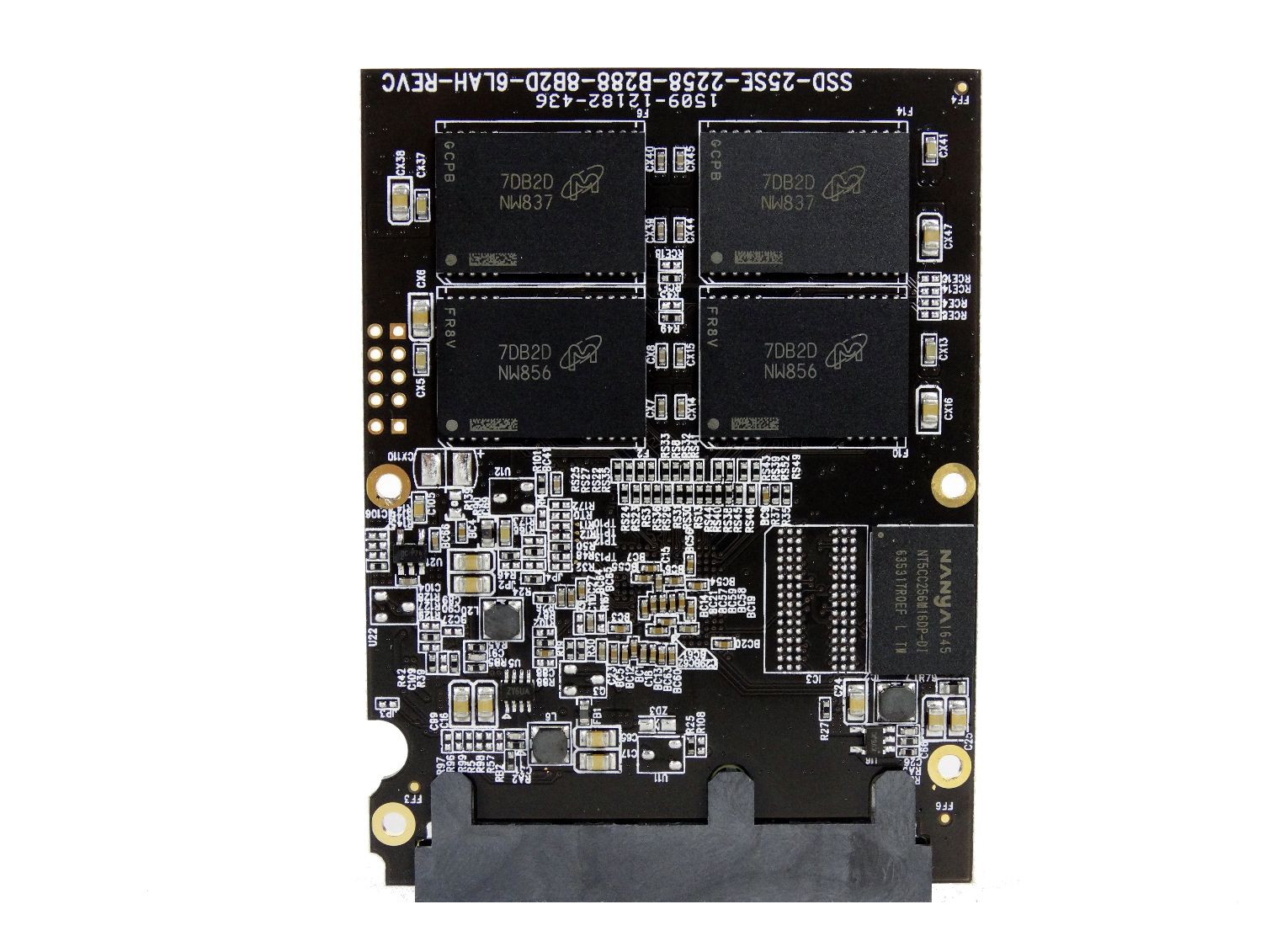
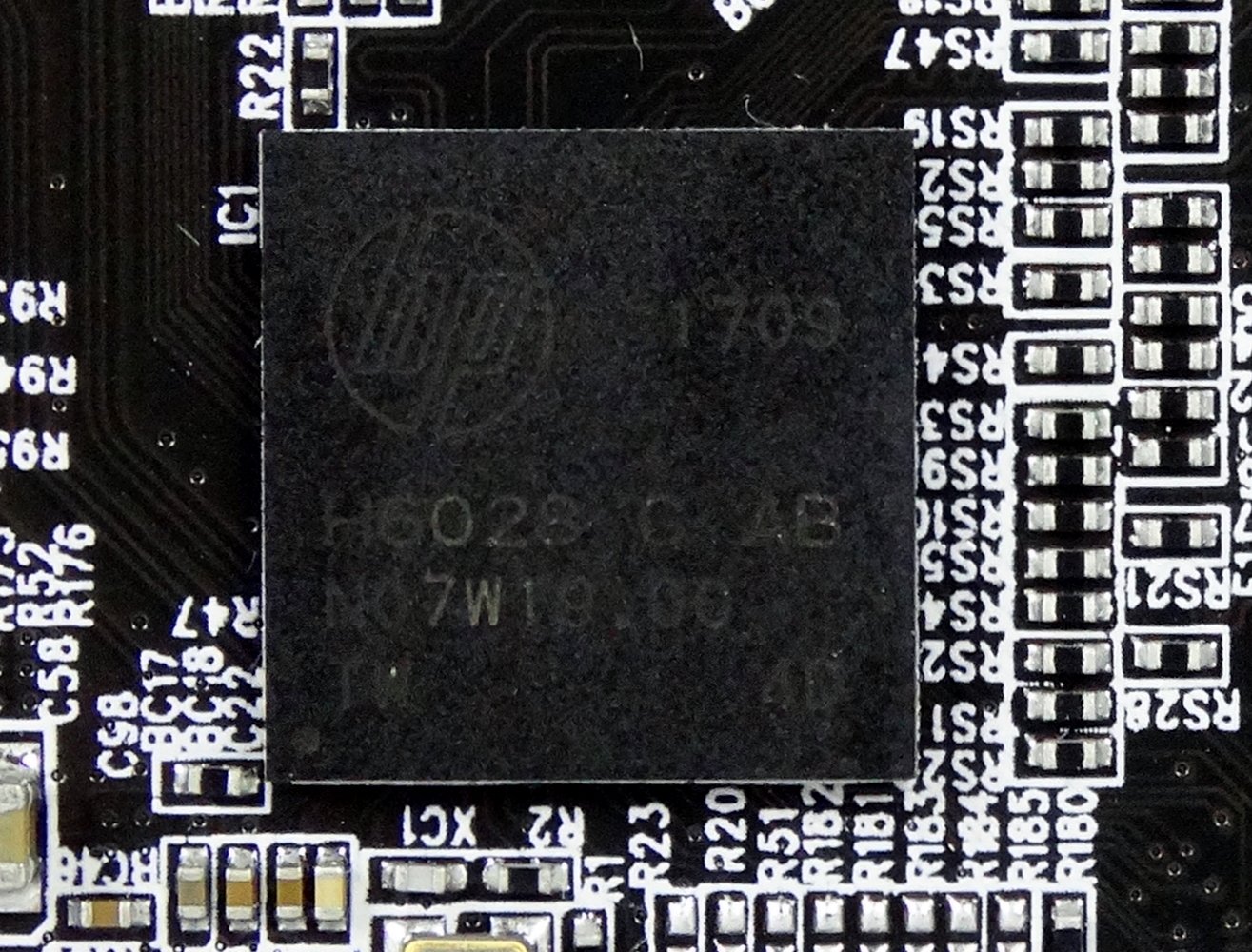
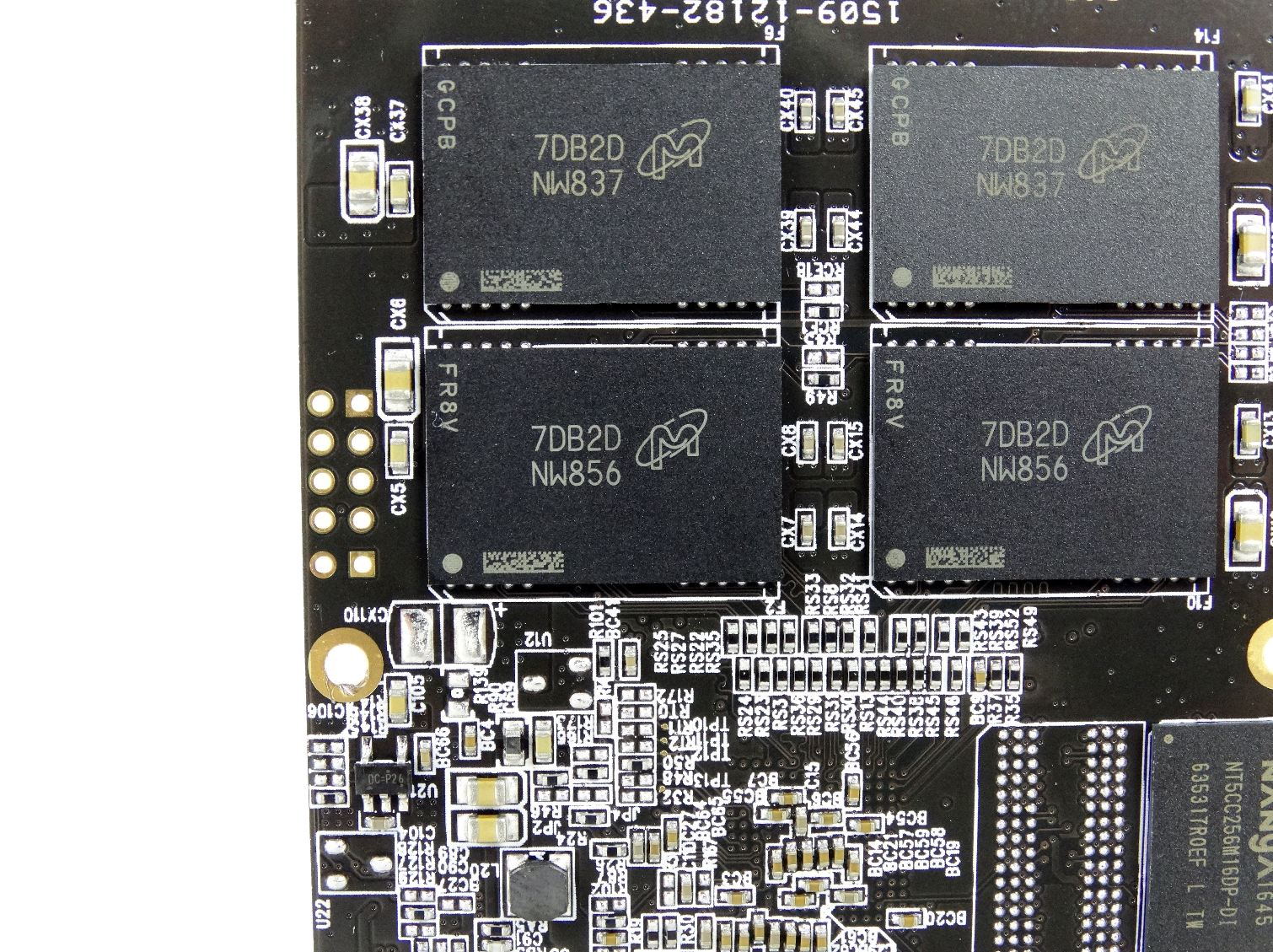
Under the hood, we found eight NAND packages armed with Micron 384Gbit TLC die using first-generation IMFT 3D technology. There is a single NANYA DRAM package that feeds an HP-branded SMI SM2258 controller. The black PCB is a nice touch, but most users will never see it.
HP places a thermal pad between the SM2258 controller and the chassis to wick heat away from the 4-channel controller.
MORE: Best SSDs
MORE: How We Test HDDs And SSDs
MORE: All SSD Content

Chris Ramseyer was a senior contributing editor for Tom's Hardware. He tested and reviewed consumer storage.
-
AgentLozen Good article.Reply
I agree with your conclusion. This isn't a bad SSD, but it's neither the fastest nor the cheapest. There's nothing really special about it. -
shrapnel_indie The only thing that could be considered special is that it's a HP. But that isn't near enough for the consumer market, albeit it might be for the business market.Reply -
Brian_R170 In the specifications section, the Capacity (Raw/User) for the 512GB version is shown as 288GB/256GB.Reply -
Nei1 One day, there was a flood in Thailand, and the quality of Western Digital never recovered. The consumer learned that "There are only two kinds of drives -- those that have failed and those that haven't failed yet." So we either spend time trying to remember all the things we wanted to back up with a collection of expensive low-reliability external drives, or employ RAID -- spend more money on purchasing redundant low-reliability drives -- the only reliability that was available since the flood.Reply
And when I say "low reliability," I'm saying that relative to Western Digital's 80 GB IDE drive, or earlier generation that didn't fail unless you hit them with a hammer. Backing up was a simple as a similarly dependable hard drive in an external enclosure, which took some money and maintenance, but it wasn't awful. This is my standard for reliability, for quality, and until we reach that state again, the consumer is being played for a sucker.
Now, instead of spindles and heads wearing out (faster than ever before), there's the threat of the transistors in the SSDs wearing out. There are sufficient reviews by consumers to make it clear that SSDs are a gamble, so it's up to the individual to spend as much money as he has on an SSD that seems to get the best reviews for reliability vs. price. There are only two types of consumers -- those whose SSDs have suddenly failed, and those whose SSDs haven't suddenly failed yet.
What would be good is if the next memory-technology will not have a limitation on lifetime. That would be worthy of being called "an improvement in reliability." -
nyannyan I'm willing to bet that WD's 80 GB drives were nowhere *near* the worst drive even in their era (*cough*Maxtor*cough*), and that's not even getting to drives that were mostly DOA (can't remember the mfr, they went bust shortly after).Reply -
Ncogneto There's a lot of progress with this combination, but it's too little, too late. By the time you read this, we'll already have the Intel SSD 545s review onlineReply
Well, we're waiting..... -
jaxstas "HP was the world's leading PC manufacturer, and it made it without a cow theme or a "dude" actor."Reply
HP bought Compaq. That's how they acquired the computer technology they have today. Prior, their stuff was bad. -
shrapnel_indie Reply19906593 said:"HP was the world's leading PC manufacturer, and it made it without a cow theme or a "dude" actor."
HP bought Compaq. That's how they acquired the computer technology they have today. Prior, their stuff was bad.
Compaq was also hitting the bottom of the barrel around that time too.
